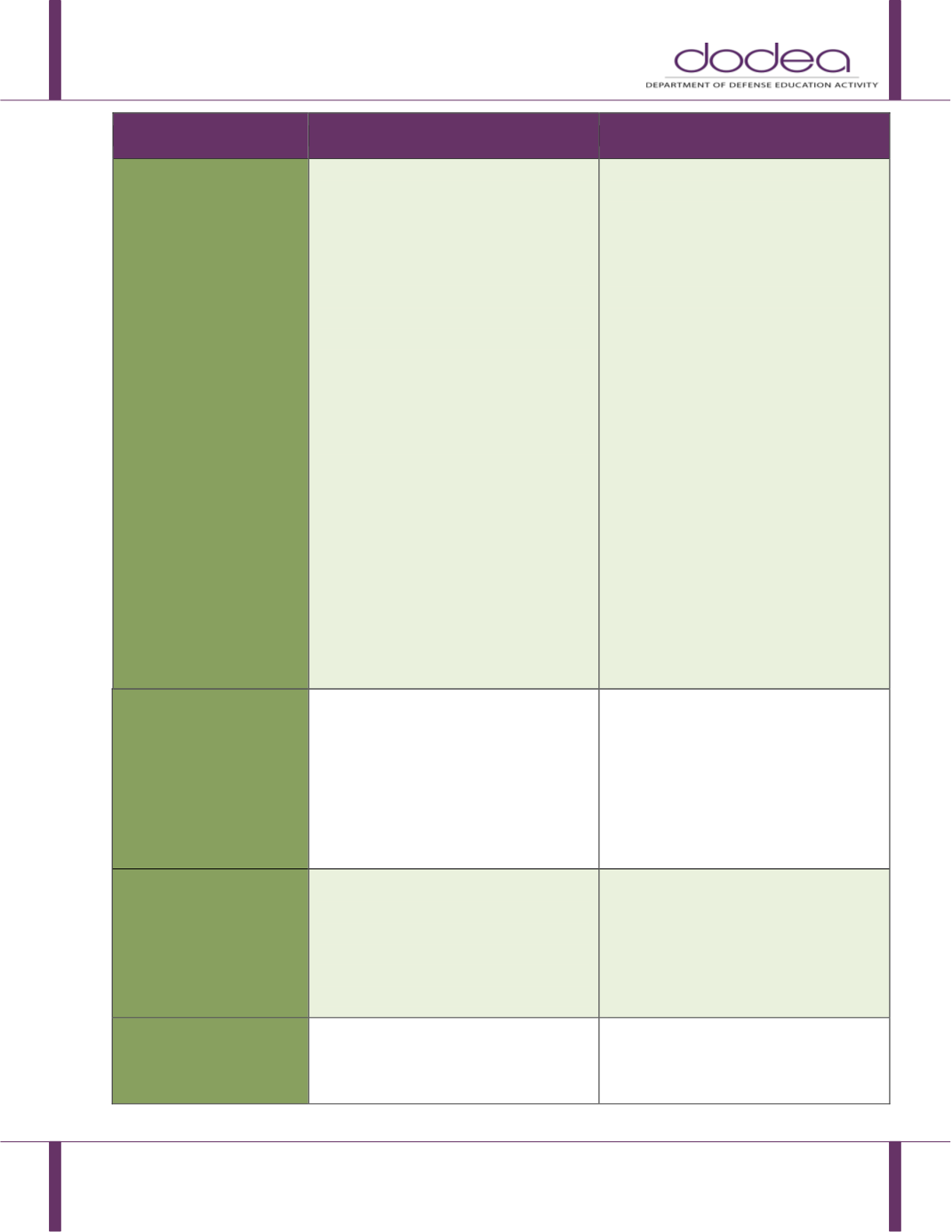

1342.12 Companion
July 12, 2017
Page 130
Characteristics
ELL Student WITHOUT a Disability
ELL Student WITH a Disability
LANGUAGE
SKILLS
First language is age appropriate
Nonverbal communications skills
(such as eye contact, response to
speaker, clarification or response,
turn taking, etc.) are appropriate for
age and culture
English language acquisition
corresponds to that expected based
on the student’s length of time in
English speaking schools
Student may demonstrate a loss of
receptive and expressive language
skills in first language when exposed
to second language
First language is not appropriate for
age level
Student does not learn English at the
same rate as student without
disability
Nonverbal communication skills are
not appropriate for age level
Sentence structure is shorter or
disordered, and grammar is
incorrect for age
Student may replace speech with
gestures and communicate
nonverbally when talking would be
appropriate and expected
Student perseverates on a topic
even after a topic has changed
May need to hear things repeated,
even when they are stated simply
and comprehensibly
Student may echo what she or he
hears. English language acquisition
does not correspond to that
expected based on the student’s
length of time in English speaking
schools
ACADEMIC
FUNCTIONS
Normal potential
Apparent problems are related to
lack of or inadequate schooling in
home country
Significantly below grade level
performance may be due to inability
to make progress in second
language acquisition or difficulty
retaining academic information
despite a variety of interventions
History of academic difficulties in
home country or first language
COGNITIVE
ABILITIES
Cognitive abilities are average
Students usually score better on
nonverbal sections of cognitive tests
and their scores on the verbal
portion of the tests increase over
the years
Verbal and nonverbal abilities are
inconsistent or significantly low
Students score better on nonverbal
sections of cognitive tests and their
scores on the verbal sections of the
tests do not increase steadily over
the years.
PROGRESS
Shows expected progress in English
acquisition and development of
academic skills
No marked discrepancy between
• May show less than expected
progress in English acquisition and
development of academic skills


















